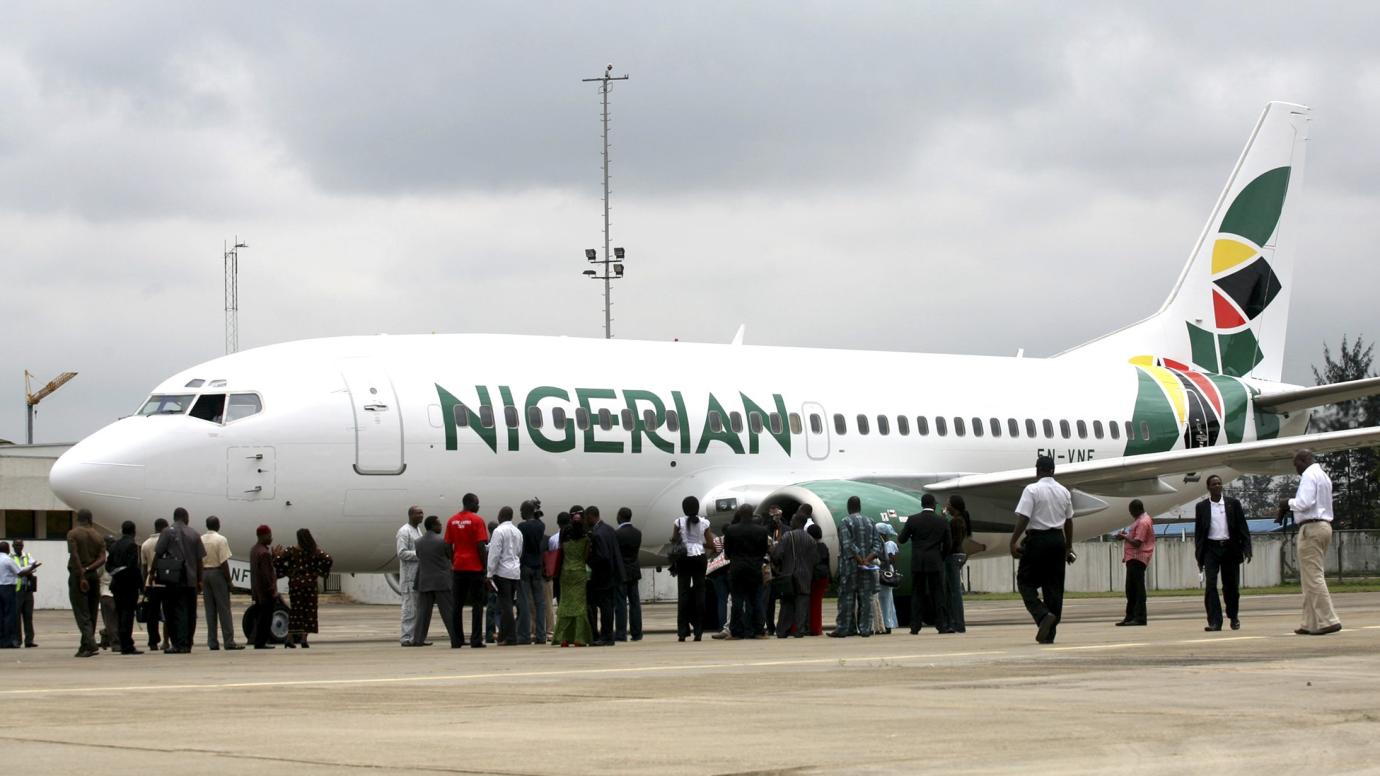By Alexander Onukwue
Domestic air travel in Nigeria in 2021 exceeded pre-pandemic levels as travelers resumed frequent movement within the country, without the burden of covid-19 variants that continued to hinder other parts of the world. But as the number of flights increased, so did delays.
More than half of the 74,000 domestic flights in Nigeria in 2021 were delayed, according to official data by the Nigerian Civil Aviation Authority (NCAA), the industry’s regulator. The rate of delay tended to increase each month, hitting a 65% peak in December compared to just half at the beginning of the year.
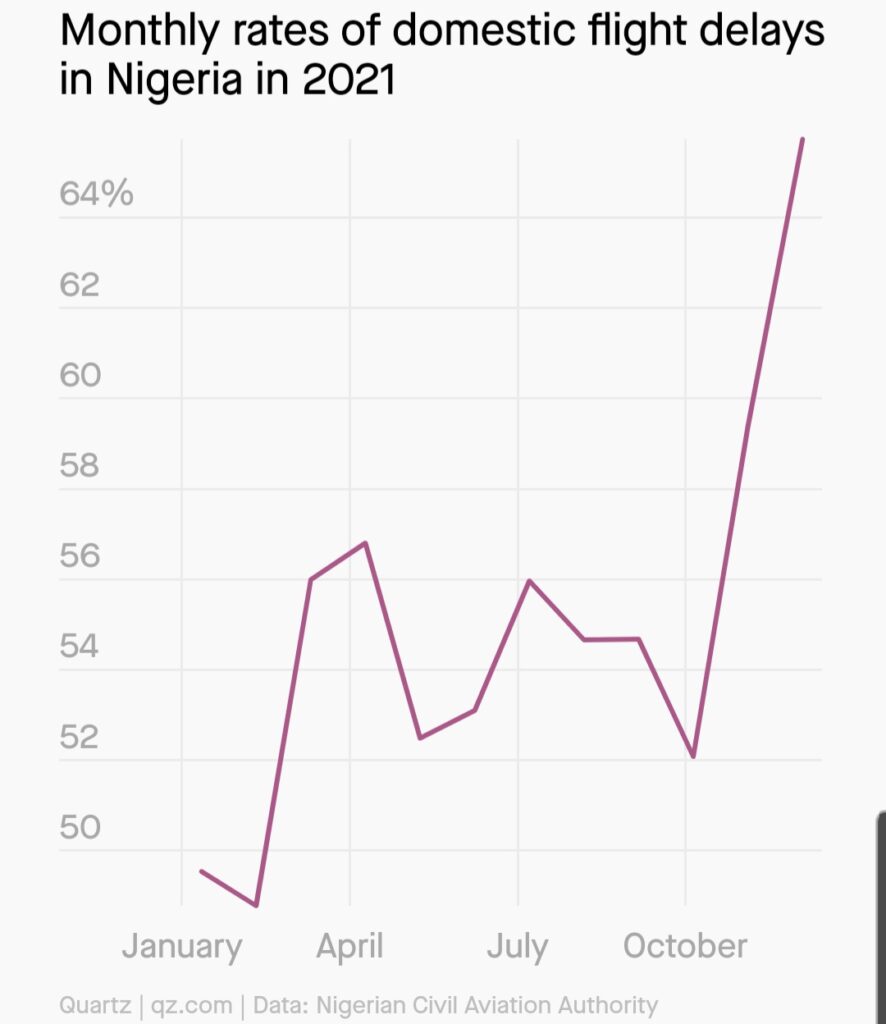
Air travel has always been a difficult endeavor in Nigeria, with delays and lost luggage being regular pain points for travelers. Due to current fuel scarcity, airlines raised their base fare for local flights to 50,000 naira ($120) from N35,000 ($85) this week, a new burden that may not reflect in a higher quality of service for consumers, especially in terms of timely flights.
Under fresh criticism for delays, Nigerian airline chief executives pushed back this month in a letter that listed 16 defenses.
They blamed adverse weather, inadequate parking spaces at airports, and having to close the airspace sometimes when VIPs like the Nigerian president are about to depart or arrive at any of the country’s 20 airports. For the most part, these are familiar, understandable reasons that have been previously documented. But the airline operators also blamed scarcity of aviation fuel and complained about “unruly passengers” who, when their flights are delayed, try to prevent other on-schedule flights from taking off, thereby further delaying other flights elsewhere.
Which airline delays the most flights in Nigeria?
That letter was co-signed by Allen Onyema, vice president of the operators’ association who owns Air Peace, a decade-old private airline that has become the market leader.
They blamed adverse weather, inadequate parking spaces at airports, and having to close the airspace sometimes when VIPs like the Nigerian president are about to depart or arrive at any of the country’s 20 airports. For the most part, these are familiar, understandable reasons that have been previously documented. But the airline operators also blamed scarcity of aviation fuel and complained about “unruly passengers” who, when their flights are delayed, try to prevent other on-schedule flights from taking off, thereby further delaying other flights elsewhere.
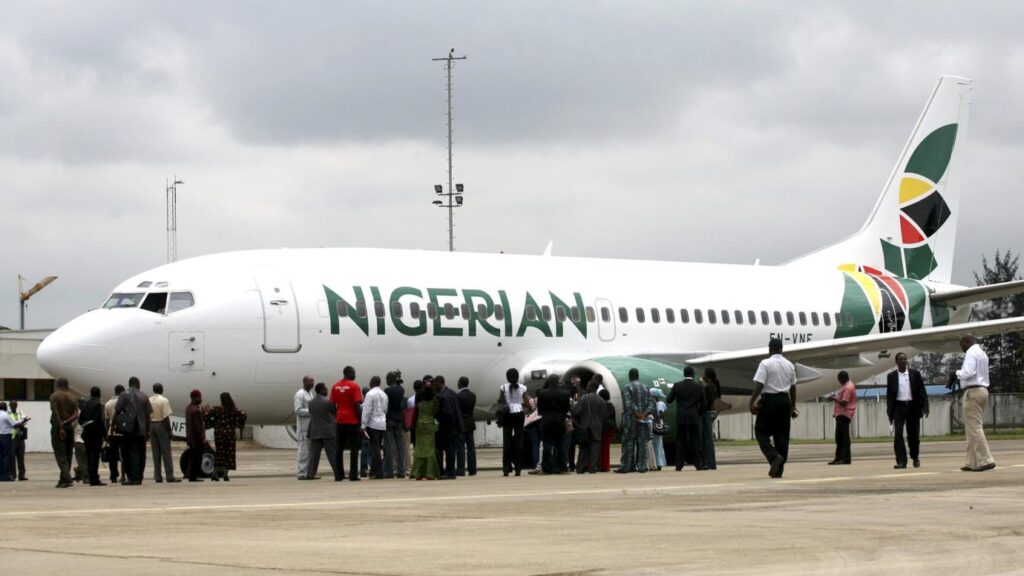
Uhh, no, that does not belong to Nigeria’s biggest airline.
Which airline delays the most flights in Nigeria?
That letter was co-signed by Allen Onyema, vice president of the operators’ association who owns Air Peace, a decade-old private airline that has become the market leader.
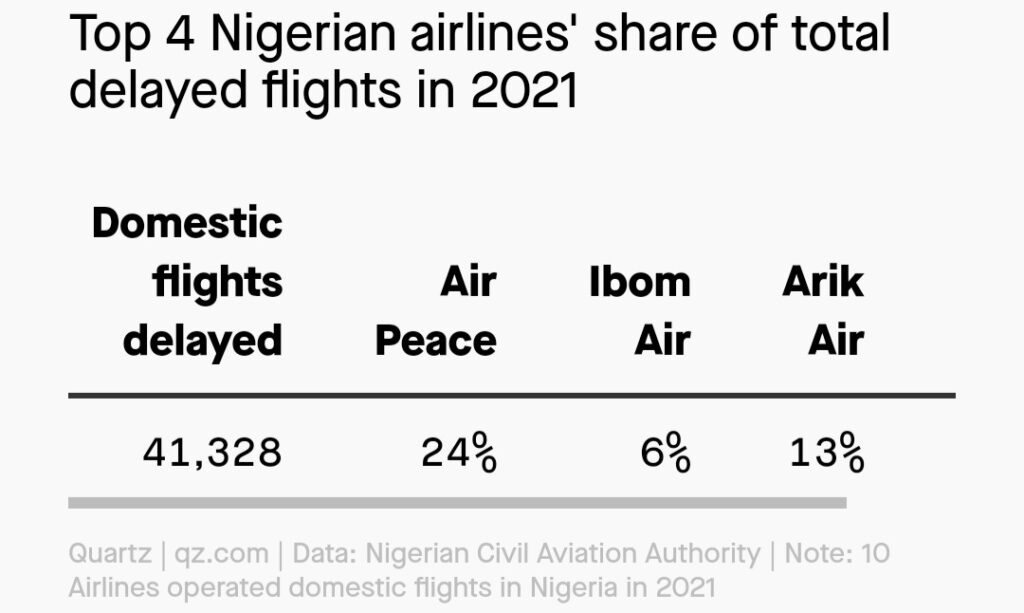
Air Peace clearly has work to do on its operations. It has become less dominant today than in 2019 when it operated 36% of the industry’s 65,000 domestic flights, per NCAA data. That year, the airline had to navigate the cloud of the US Justice department’s indictment of Onyema for bank fraud and money laundering to the tune of $20 million. He denied the allegation at the time, even drawing some goodwill defenders for Air Peace’s role in evacuating Nigerians facing xenophobic attacks in South Africa. His case remains open under a new US prosecutor.
Until further change happens, the reality is that Nigeria’s biggest airline remains one of the most reliable for taking off on schedule. An airline might have few flights with a huge percentage delayed, but because the flights are few the airline is not easily observed by passengers. Overland Airways, the airline with the worst delay record, operated the second-lowest number of flights last year.
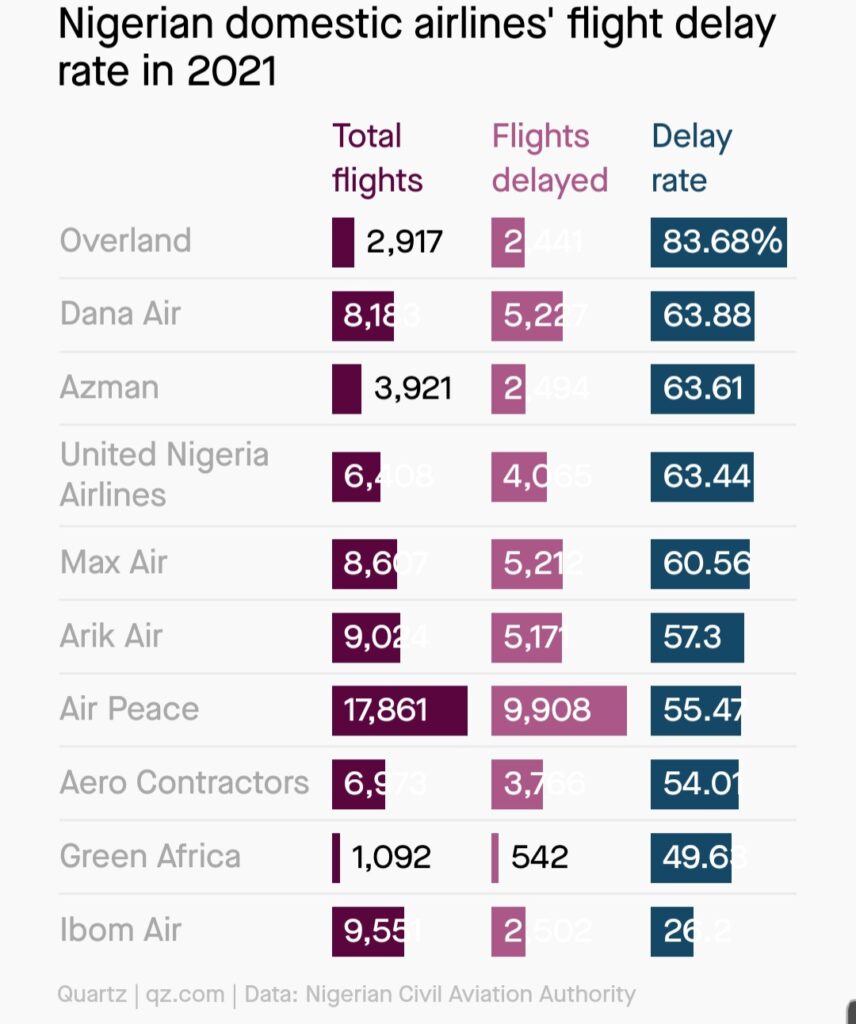
And while it is a problem that one in four delayed domestic flights in 2021 was by Air Peace, the airline can claim to have improved; its share of the Nigerian industry’s flight delays was higher in 2019 at more than one in three.
International flights are yet to rebound in Nigeria
Overall, the good news is that domestic flights are getting less delayed in Nigeria even as flights increase and more operators enter the business, from 57% in 2019 to 55% in 2021. The same level of improvement happened with international flights, from 33% in 2019 to 31% last year.
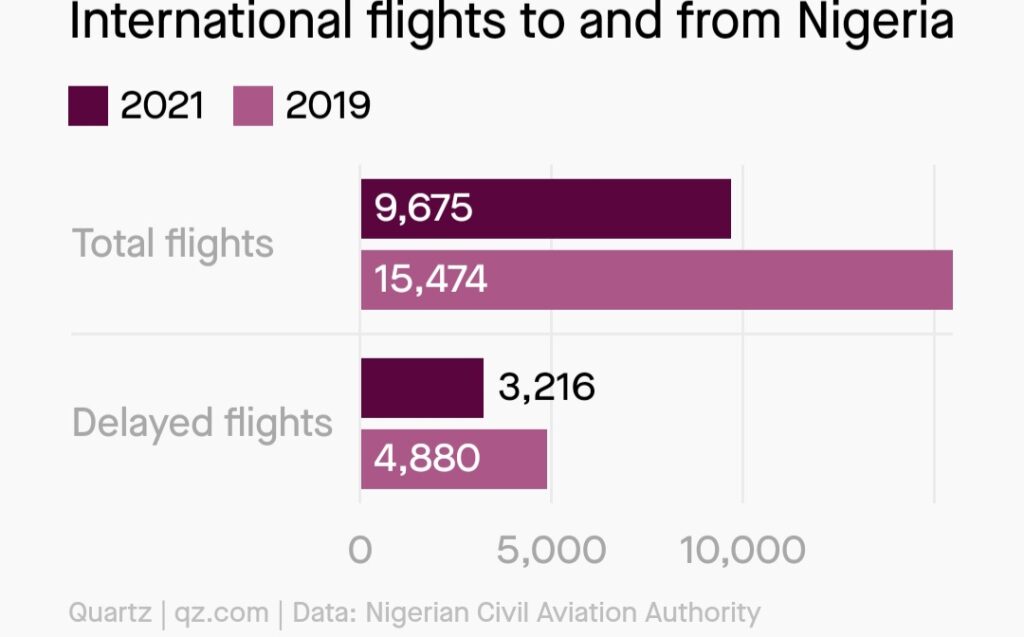
But while local travel has grown, the reverse is the case with international flights with many countries still imposing covid-19 travel restrictions that put off potential travelers. 27 international airlines operated in Nigeria last year, 5 fewer than in 2019. This may change as more countries, like Denmark, end restrictions and, like England, switch to “living with covid” policies, fully re-opening the world for free movement of people and goods.
Credit | Quartz Africa

